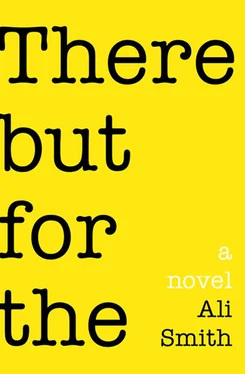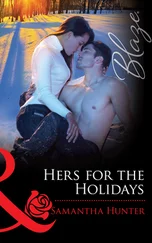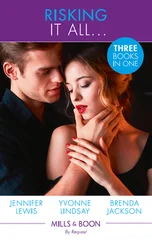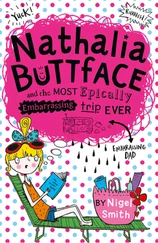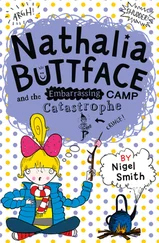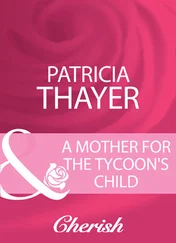How do you know stuff like these things? Hannah says.
I read them, Terence says. In books.
No, but why do you know them? Hannah says.
Why? Terence says.
I always think it’s so funny what people know and why they do, Hannah says.
Why does anybody know anything? Terence says.
I never know why anybody knows anything, Hannah says. But I’d have thought you would know about, you know, your own culture, before you knew other things about cultures like Lancashire and places like that, I mean.
Have you not met any or very many black people before or are you just living in a different universe? the child says.
Silence thuds down round the table.
No, Hannah says, I didn’t mean it like it sounds, like that. I was just surprised that he knew so much, knows so much about music and, and when his job is metal, and musicals.
All art aspires to the condition of music, Bernice says. That’s Walter Pater. All art aspires to the condition of musical. That’s Terence Bayoude.
Jen and Caroline and Hugo make knowing noises.
And I didn’t understand any of that last comment at all, Hannah says.
She looks desperate.
That was lovely, Jen, Bernice says. Thank you very much.
Miles, Jen says, there’s couscous as accompaniment to the tagine, and I can have a look in the fridge and see what will go with it, but it might be a bit haphazard, I hope you won’t mind. Or would you like me to make you an omelette?
Anything vegetarian will be really lovely, thank you, Jen, Miles says. Please don’t go out of your way for me.
I’m only concerned that I’ve still got enough eggs, Jen says. But please don’t let that concern you for a moment. Eric?
Jen and Eric stand up and start gathering plates. Then Eric comes back from the kitchen and fills everybody’s glass with red, except Mark’s, probably because Mark’s white glass is still full and it looks like he isn’t drinking. Mark can’t think how to ask, and then the moment when he could have asked is gone.
The internet, Hannah is saying. If I need to know anything. That’s what’s so great about being alive now. But if it was just me, on a desert island, with just myself. Sometimes I have this dream, I’ve had it loads of times actually, it keeps coming back, where I’m at school even though I’m too old to be at school—
Are you naked in it? Richard says.
Everybody laughs except Hannah.
— and all the kids are much younger than me, and the exam paper is put down in front of me, she says, and all the little kids start writing the answers, and I sit there and I look at it and my mind goes completely blank, like an empty space, like the empty blank page I know I have to fill, you know, cover, with things I don’t know, and I’m sitting there and it’s not just that I don’t know how to answer any of the things in the exam, it’s that I don’t know anything.
She looks close to tears. Miles jogs her elbow gently.
The next time you have that dream, he says, and you’re sitting in front of that exam paper, tell yourself in your head that you do know. Sit at the desk and look at the paper and tell yourself about, uh, tell yourself you know—
A song, the child says.
Yes, a song, Miles says.
But I’m not musical, Hannah says crossing her arms and shaking her head. I haven’t a musical bone—
Yes, but you’ll know a song, there must be a song you like, Miles says.
I don’t know any, Hannah says.
What’s a song everybody knows? Miles says to Terence.
Everybody knows Somewhere Over The Rainbow, the child says.
Oh yeah, I know that one, Hannah says, from the film and everything.
Right, Miles says. When you’re in that exam room the next time, say to yourself, I’m all right, I know Somewhere Over The Rainbow.
But I don’t know anything about it, Hannah says. And if I look down at the exam paper, it’ll say, like, who wrote the rainbow song, and tell us everything you know about the rainbow song, and all I know is that it was from a film and I still won’t be able to answer anything right.
This is what we’ll do, Miles says. Terence is going to tell you three facts about that song. And the next time you have that dream, you’ll know three things about it and you’ll be able to instruct your subconscious to write them down.
Hannah sniffs, blows her nose.
I probably don’t even have a subconscious, she says.
Okay, Terence says. Three things about Somewhere Over The Rainbow. Uh. Right. It was written by Harold Arlen and Yip Harburg, Arlen did the music and Harburg the lyric. There’s two things.
There’s no way I’ll be able to remember that when I’m asleep, I can hardly remember it right now when I’m wide awake! Hannah says.
Okay, Terence says. Okay — I know. The first two notes form an octave leap.
He sings them.
Fucking pansy, Richard says under his breath.
And the way they do that, Terence says, makes the word somewhere leap right into the sky, out of hopelessness to hope.
Hannah’s face fills with panic. She turns to Miles and shakes her head.
Something more anecdotal, Miles says to Terence.
Anecdotal, Terence says.
He widens his eyes.
What’s anecdotal? the child says.
Like when you tell a story, Terence says.
There’s that really good story about it, about the little dog that always runs away, the child says.
Yes, Terence says. Yes. Good one, Brooke. So. Listen. You know the middle bit of the song? The bit about some day I’ll wish upon a star?
He hums it. De da de da de da de da.
Hannah nods.
Terence tells her that Harold Arlen, the man who wrote the tune, had written the first part, the over the rainbow part, but couldn’t think of a melody to link each verse, or to act like a bridge between them.
And Arlen had this little dog, Terence says, like a fox terrier or that kind of dog, who was quite badly behaved and kept running away and getting lost.
His name was Pan, the child says.
So, there was Harold Arlen, Terence says, standing there and rubbing his forehead, worried, one minute saying, I can’t think what to do with this tune, then the next minute whistling for that little dog to come back—
Terence whistles the tune of the some-day-I’ll-wish-upon-a-star part of the tune exactly like he is whistling for a little dog to come back.
Everybody at the table laughs out loud, even Richard.
I won’t ever forget that! Hannah says. That’s brilliant! Tell me another one like that.
Okay, Terence says. Brooksie. What else? Something else.
The man who, when they were boys, sat next to the other boy in school because of the alphabet, the child says.
Yep, Terence says. Yip.
Yep yip! the child says. Yip yip yooray!
She claps her hands above her head. Bernice laughs.
Yip Harburg, Terence says. The man who wrote the words. He wrote the words to so many songs we all just know, just like that. He was born a poor Jewish kid in New York, his parents were sweatshop workers, and he grew up in a house where he and his sister slept on chairs pushed together at night, they were so poor.
Snore, Richard says.
No, listen, Hannah says. And his parents made sweatshirts, go on, Terence.
He lit the gas lamps on Broadway as a boy, Terence says, it was his first job. And in the school he went to, they sat their kids in alphabetical order. One day he took out some poems he loved—
Could this be, sorry Mark and, eh, your friend, the gayest conversation I’ve ever heard in this house, or possibly any house? Richard says.
Don’t, Hannah says. It’s for my dream.
One day, Terence says, he had a book of poems with him in school and he was reading them, and the kid sitting next to him said, they’re not just poems, you know. They’re more than poems. And this kid took Harburg home with him, and played him some 78s on a gramophone, because the poems he’d been reading were the lyrics for Gilbert and Sullivan songs. H for Harburg. G for Gershwin. He was twelve years old and he’d been sitting next to the twelve-year-old Ira Gershwin, right there, next to him, at school. And they both grew up to be …
Читать дальше
